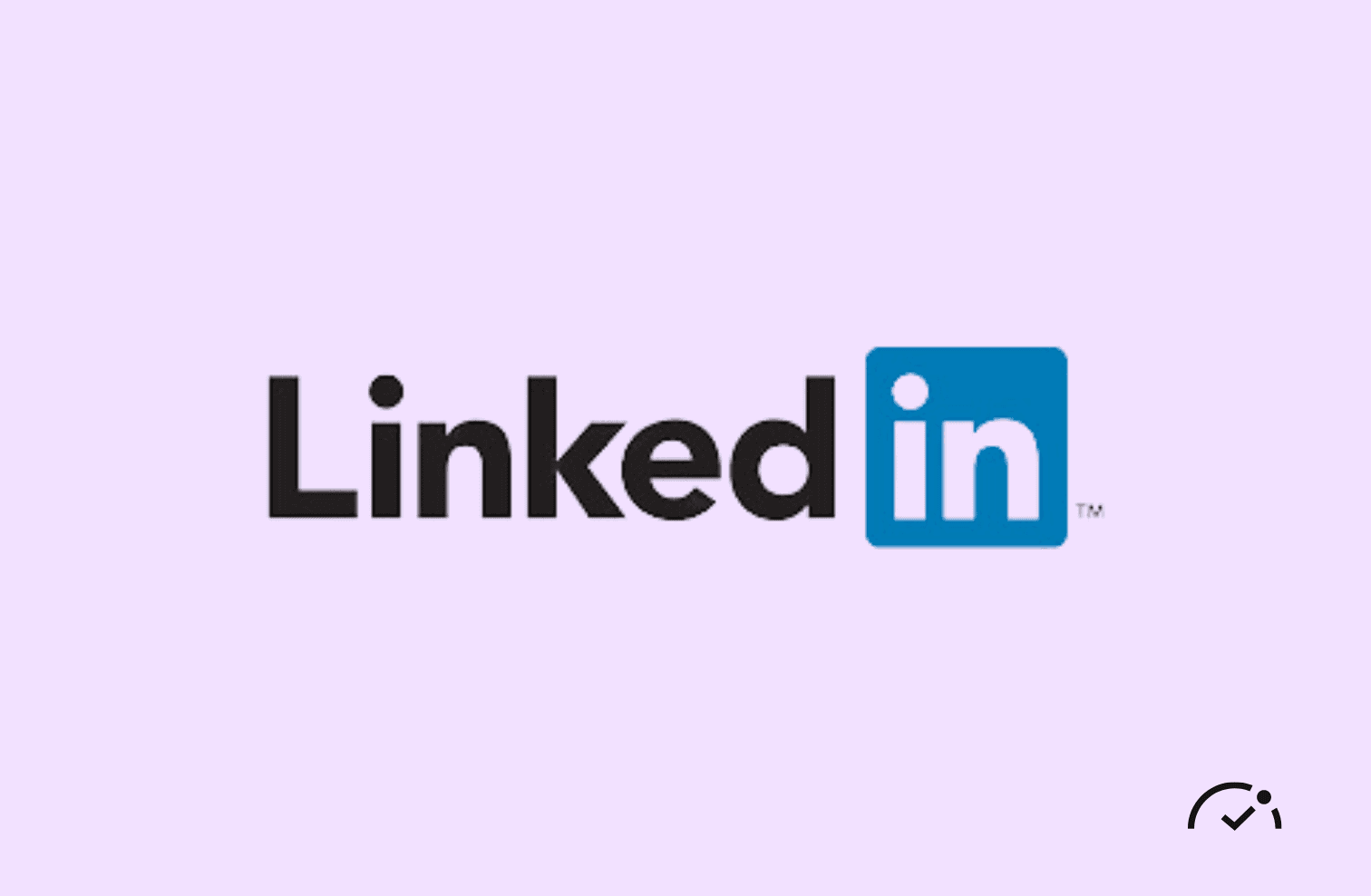Affiliate marketing offers a compelling path to building an online business without upfront costs. By promoting other companies' products and earning commissions on sales, you can create a sustainable income stream.
This guide empowers beginner affiliate marketers to take their first steps without breaking the bank.
Finding Your Niche: Tailoring Content to a Target Audience
Success in affiliate marketing hinges on a well-defined niche. This is the specific area of interest where you'll focus your content and target audience.
A niche allows you to develop deep expertise, create content that resonates, and attract a loyal following.

Broad Niche vs. Targeted Niche:
Broad Niche: A broad niche, like "health and wellness," casts a wide net but faces intense competition. It's harder to stand out and establish yourself as an authority.
Targeted Niche: Conversely, a targeted niche, like "vegan baking for athletes," caters to a specific audience with unique interests. This allows you to become a recognized expert and build a strong community.
Identifying Your Niche:
Personal Passions: What are you genuinely enthusiastic about? Your passion will fuel content creation and make the process enjoyable.
Market Research: Research trending topics and identify niches with high affiliate program availability and a lack of overwhelming competition.
Target Audience: Consider who you want to reach. Understanding their demographics, interests, and pain points helps tailor your content for maximum impact.
You might also like:
Traffic Sources: Where to Find Your Audience
Once you've chosen your niche, it's time to identify traffic sources. Here's how to attract your target audience without spending a dime:
Social Media Platforms:
Leverage platforms like Facebook, Instagram, Twitter, and Pinterest to share valuable content and build a community. Engage with your audience, answer questions, and establish yourself as a thought leader.

Blog Posts:
Start a blog and create high-quality content relevant to your niche. Research SEO (Search Engine Optimization) to improve your blog's ranking in search results, attracting organic traffic.
Video Content:
Platforms like YouTube offer immense potential. Create informative and engaging videos demonstrating products or addressing audience concerns. To further enhance your production efficiency and scale your content creation, consider using AI text to speech tools. These tools can help you quickly generate professional-sounding voiceovers for your videos, allowing you to reach a wider audience without compromising on quality.
Niche-Specific Forums:
Participate in online communities related to your niche. Provide valuable insights and subtly promote relevant products.
Email List:
Build an email list by offering valuable free resources like ebooks or cheat sheets. This allows you to nurture leads and promote affiliate offers directly through email marketing.
Content Strategy:
Developing a solid content strategy is crucial. Focus on creating informative, engaging content that educates and entertains your audience. Address their pain points and showcase how the products you promote solve their problems.
Types of Content:
Blog Posts: Write informative blog posts about your niche, including product reviews, tutorials, and industry insights.
Video Content: Create engaging video content demonstrating products, conducting interviews, or offering tutorials.
Social Media Posts: Share bite-sized, engaging content on social media platforms, driving traffic back to your blog or landing pages.
Content for SEO:
Keyword Research: Research relevant keywords people use to find information in your niche. Optimize your content for these keywords to improve search engine ranking and attract organic traffic.
Long-Tail Keywords: Target long-tail keywords - more specific and less competitive keyword phrases - to attract a qualified audience genuinely interested in what you offer.
Internal Linking: Link relevant blog posts and pages within your website to improve user experience and SEO performance.
Free Tools:
Several free tools can help you get started on your affiliate marketing journey:
Google Analytics: Monitor your website traffic and track clicks on your affiliate links to understand how your efforts are performing.
Google Docs: Utilize Google Docs to create compelling content for your blog, emails, and other marketing materials.
Canva or Pixabay: These platforms provide access to free images and design tools to elevate your content visually.
Remember: Building an audience takes consistent effort. High-quality, valuable content and consistent engagement are key to attracting and retaining a loyal audience.

Selecting Affiliate Programs and Products
Choosing the Right Products:
Not all products are created equal. Here's how to select high-quality products that resonate with your audience and deliver strong commission rates.
Relevance: Promote products that directly relate to your niche and your audience's needs.
Commission Rates: Commission rates vary. While higher rates are appealing, prioritize products you genuinely believe in and that offer value.
Conversion Rates: Conversion rates indicate the percentage of visitors who click your affiliate links and make a purchase. Choose products with a good track record of converting visitors into paying customers.
Building Your Affiliate Business: The No-Cost Grind
While the initial setup requires no monetary investment, building a successful affiliate business takes time and consistent effort.
Here's how to leverage free resources and strategies to optimize your online presence and generate affiliate income.
Promotional Efforts:
Once you have valuable content and a dedicated audience, it's time to subtly promote your affiliate products. Here are some free, effective methods:
Social Media Sharing: Share your blog posts and other content on social media platforms, including affiliate links within the post or description.
Organic Traffic: Optimize your content for SEO to attract organic traffic from search engines. This ensures a steady stream of visitors without paid advertising.
Email Marketing: Leverage your email list to send promotional emails highlighting the benefits of relevant affiliate products. Personalize your emails and offer valuable insights alongside product recommendations.
Content Calendar:
Plan your content creation by developing a content calendar. This helps maintain consistency and ensures you're continuously providing fresh content to your audience.
Future Content:
Brainstorm future content ideas that address your audience's needs and strategically integrate affiliate promotions. This ensures a natural flow and avoids feeling sales-driven.
Digital Products:
Consider creating your own digital products like ebooks, checklists, or online courses related to your niche. Offer them as lead magnets in exchange for email signups, expanding your reach and nurturing leads for future affiliate promotions.
Building Trust and Authority:
Engagement:
Respond to Comments: Actively engage with your audience by responding to comments on your blog and social media posts. This fosters trust and strengthens relationships.
Live Streams: Host live streams on social media platforms to answer questions, offer insights, and subtly promote affiliate products.
Content Quality:
Fact-Checking: Ensure your content is accurate and well-researched. Cite credible sources and provide data to back up your claims.
Transparency: Be transparent about your affiliate relationships. Disclose when a link is an affiliate link and avoid misleading your audience.
Building on Your Success:
Analyzing Results:
Track Performance: Regularly monitor your website analytics and social media insights to track traffic, click-through rates (CTR), and conversion rates.
Identify Trends: Analyze data to identify trends and see what content resonates most with your audience. Double down on successful strategies and adapt where needed.
Scaling Your Efforts:
Affiliate Networks:
Once you start generating traffic and seeing results, consider joining affiliate networks. These platforms connect you with a broader range of affiliate programs, offering wider product choices and potentially higher commission rates.
Paid Advertising:
While not essential initially, consider starting small-scale paid advertising campaigns once you have established a solid foundation. This can significantly increase your reach and accelerate your growth.
Remember: Building a successful affiliate business takes time and dedication. Focus on providing valuable content, building trust with your audience, and promoting high-quality products you genuinely believe in. By consistently delivering value and optimizing your efforts, you'll be well on your way to generating sustainable affiliate income.
Conclusion: The Power of Free in Affiliate Marketing
Affiliate marketing offers a compelling path to building an online business without a significant upfront investment. By leveraging free resources, creating valuable content, and strategically promoting relevant products, you can cultivate a loyal audience and generate a steady income stream. Remember, success hinges on consistent effort, audience engagement, and a commitment to providing exceptional value. Embrace the "no-cost grind," and watch your affiliate business flourish over time.
Choosing the Best Marketing Channels for Your Affiliate Business
1. YouTube
YouTube is a powerful platform for affiliate marketing, with over 2 billion active users worldwide. You can create videos promoting products or services, and earn commissions when viewers make purchases through your affiliate links.

Types of YouTube videos for affiliate marketing:
Product reviews: Create videos reviewing products or services you recommend.
Tutorials: Demonstrate how to use products or services.
Vlogs: Share your experiences with products or services.
Comparison videos: Compare different products or services.
Tips for affiliate marketing on YouTube:
Create high-quality videos: Your videos should be well-produced and informative.
Use relevant keywords: Optimize your videos for relevant keywords so that people can easily find them.
Be transparent: Disclose your affiliate relationships to your viewers.
Promote your videos: Share your videos on social media and other channels.
2. Instagram
Instagram is another great platform for affiliate marketing, with over 1 billion active users. You can promote products or services through posts, stories, and Reels.

Types of Instagram content for affiliate marketing:
Product photos: Share photos of products you recommend.
Videos: Create short videos demonstrating products or services.
Stories: Share your experiences with products or services.
Influencer marketing: Partner with influencers to promote products or services.
Tips for affiliate marketing on Instagram:
Create high-quality content: Your content should be visually appealing and engaging.
Use relevant hashtags: Use relevant hashtags so that people can easily find your content.
Be transparent: Disclose your affiliate relationships to your followers.
Promote your content: Share your content on other social media channels.
3. Facebook
Facebook is a great platform for affiliate marketing, with over 2 billion active users. You can promote products or services through posts, groups, and Marketplace.

Types of Facebook content for affiliate marketing:
Product posts: Share posts about products you recommend.
Videos: Create videos demonstrating products or services.
Group discussions: Join or create groups related to your niche and promote products or services.
Marketplace listings: Sell products or services through Facebook Marketplace.
Tips for affiliate marketing on Facebook:
Create high-quality content: Your content should be informative and engaging.
Use relevant keywords: Optimize your content for relevant keywords so that people can easily find it.
Be transparent: Disclose your affiliate relationships to your followers.
Promote your content: Share your content on other social media channels.
4. LinkedIn
LinkedIn is a professional networking platform that can be used for affiliate marketing. You can promote products or services through posts, articles, and LinkedIn groups.

Types of LinkedIn content for affiliate marketing:
Product posts: Share posts about products or services you recommend.
Articles: Write articles about products or services you recommend.
Group discussions: Join or create groups related to your niche and promote products or services.
LinkedIn Sales Navigator: Use LinkedIn Sales Navigator to find potential customers.
Tips for affiliate marketing on LinkedIn:
Create high-quality content: Your content should be informative and professional.
Use relevant keywords: Optimize your content for relevant keywords so that people can easily find it.
Be transparent: Disclose your affiliate relationships to your connections.
Promote your content: Share your content on other social media channels.
5. X (Now Twitter)
X is a microblogging platform that can be used for affiliate marketing. You can promote products or services through tweets, retweets, and promoted tweets.

Types of X content for affiliate marketing:
Product tweets: Share tweets about products or services you recommend.
Retweets: Retweet tweets from other users about products or services you recommend.
Promoted tweets: Pay to promote tweets about products or services you recommend.
Tips for affiliate marketing on X:
Create high-quality content: Your tweets should be informative and engaging.
Use relevant hashtags: Use relevant hashtags so that people can easily find your tweets.
Be transparent: Disclose your affiliate relationships to your followers.
Promote your tweets: Share your tweets on other social media channels.
Conclusion
These are just a few of the many marketing channels you can use for affiliate marketing. The best channels for you will depend on your niche, target audience, and budget. Experiment with different channels and see what works best for you.
Why Affiliate Marketing is a Booming Business Model
Affiliate marketing has exploded in popularity in recent years, and for good reason. It offers a compelling path to building an online business with several advantages for both merchants and marketers (affiliates). Here's why affiliate marketing is considered such a strong business model:
Low Barrier to Entry:
Unlike traditional businesses, affiliate marketing requires minimal upfront investment. You don't need to develop your own products, manage inventory, or handle customer service.
All you need is a platform (like a blog, social media account, or website) and the ability to create engaging content.
Scalability and Flexibility:
Your earning potential in affiliate marketing is virtually unlimited. As you build an audience and refine your marketing strategies, you can scale your efforts and significantly increase your income.
You have the flexibility to work from anywhere with an internet connection, making it a great choice for location-independent entrepreneurs.
Performance-Based Revenue:
You only earn money when someone makes a purchase through your affiliate link. This aligns your interests with the merchants you promote, as you're incentivized to drive high-quality traffic and conversions.
This also eliminates the risk of holding onto unsold inventory, a major concern for traditional businesses.
Wide Range of Products and Niches:
Affiliate marketing allows you to promote a vast array of products across countless niches. Whether you're passionate about fashion, technology, fitness, or anything in between, you can find products to align with your interests and audience.
This flexibility allows you to cater to specific audiences and build a loyal following around your chosen niche.
Building Authority and Credibility:
By consistently creating valuable content and promoting high-quality products, you can establish yourself as an authority in your chosen niche.
This builds trust with your audience, making them more likely to click on your affiliate links and make purchases through your recommendations.
Complementary Marketing Strategy for Businesses:
Affiliate marketing offers businesses a cost-effective way to reach new audiences and expand their customer base.
Businesses only pay affiliates for successful conversions, making it a low-risk, performance-driven marketing strategy.
Benefits for Consumers:
Affiliate marketing can benefit consumers by providing them with valuable content and product recommendations from trusted sources.
Affiliates often take the time to research and review products, helping consumers make informed purchasing decisions.
Here are some additional points to consider:
Passive Income Potential: While it takes effort to build a successful affiliate business, over time, your content can continue to generate income even while you're not actively working.
Diversity of Marketing Channels: You can promote affiliate products through various channels like blog posts, social media, email marketing, and even video content. This allows you to tailor your approach to your target audience and preferred platforms.
However, it's important to remember that affiliate marketing is not a get-rich-quick scheme. It requires dedication, consistent effort, and a focus on creating valuable content that resonates with your audience.
By understanding the advantages of affiliate marketing and putting in the work to build a strong online presence, you can leverage this powerful business model to achieve your entrepreneurial goals.
BeforeSunset AI: The Mindful Productivity Powerhouse with an Affiliate Opportunity
Feeling overwhelmed by to-do lists and struggling to find structure in your workday? BeforeSunset AI might be the answer you've been searching for.
This innovative productivity tool takes a human-centric approach, prioritizing your individual needs and empowering you to create a schedule that works for you. Here's what sets BeforeSunset AI apart:
Features for Peak Productivity:
Time-Blocking Made Easy: Schedule your tasks using the time-blocking technique, a proven method for maximizing focus and minimizing distractions. Choose to work with the AI assistant for automated scheduling or build your schedule manually, seamlessly integrating with your existing calendar.
Track Your Time: Gain valuable insights by starting timers for each task, allowing you to see exactly where your time goes. This self-awareness empowers you to optimize your workflow and improve time management.
Personalized Analytics: Delve into your productivity data through the Personal Analytics screen. This comprehensive dashboard provides a productivity score and valuable insights, helping you identify areas for improvement and become the ultimate planner.
Intelligent AI Assistant: Let go of the reins and allow the AI Assistant to take charge. It can automatically plan your day, break down tasks into actionable steps, and even create subtasks, ensuring you stay on track and achieve your goals.
Seamless Google Sync: Maintain a unified workflow by syncing BeforeSunset AI with your Google Calendar. This eliminates the need to switch between apps, keeping all your meetings, appointments, and tasks in one centralized location.
Turn Your Passion into Profit: BeforeSunset AI Affiliate Program
Beyond boosting your productivity, BeforeSunset AI offers an exciting opportunity for you to share the benefits and earn income. Here's why joining their affiliate program might be the perfect fit:
Earn Up to 40% Commission: Become a BeforeSunset AI affiliate and benefit from generous commissions on every sale you generate. Share your passion for mindful productivity and get rewarded for it!
Zero Upfront Investment: Anyone can join the BeforeSunset AI Affiliate Program, from established influencers to productivity enthusiasts. There are no budget constraints, making it an accessible path to earning income.
Simple Three-Step Process: Getting started with the affiliate program is straightforward. Simply fill out the registration form, acquire your personalized affiliate link, and start promoting BeforeSunset AI.
Effortless Promotion: Spread the word about BeforeSunset AI through your preferred channels, leveraging the extended 90-day cookie duration on referred visitors. This means you can earn commissions even if someone doesn't sign up immediately after clicking your link.
Dedicated Support: The BeforeSunset AI team is committed to your success. They diligently track and process commissions, ensuring you receive timely payouts.
BeforeSunset AI empowers you to take control of your workday and build a more mindful schedule. Additionally, their affiliate program offers a compelling opportunity to turn your passion for productivity into a source of income.


